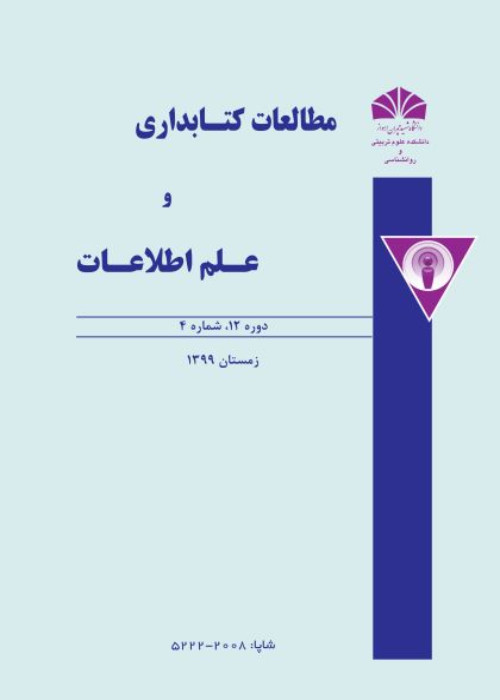Identifying the Status of Organizational Experiences Documentation at Research Centers and Institutes
In today’s knowledge society, it is vital to use the experiences gained by directors and chancellors of organizations and their experts for Succession and educating new directors. But unfortunately, in higher education and especially in research centers and institutes, despite the important role of experience, it is neglected to document experiences and the tacit knowledge inherent in experiences for several reasons such as: lack of culture of writing, vagueness of the concept of organizational experience, lack of a proper method for documentation and sharing it, and lack of legal and supportive infrastructure. Accordingly, efforts should be made to extract accumulated knowledge in the minds of Chancellors and deputies of research centers and institutes, by documentation of experiences, so it will be possible to share knowledge and experience among new Chancellors and deputies. Therefore, the knowledge stored in research centers and institutes become a permanent usable resource. Based on this, the study by examining the status of organizational experiences documentation of Chancellors and deputies of research centers and institutes, develop a model for this important issue.The purpose of this study was to identify the status of documenting the organizational experiences of research institutes and centers, using mixed-method.
This research is developmental and applied research. In this research, according to the subject and nature of the research, the research method was mixed method and exploratory. In qualitative section, interview was used for data gathering. The questions of interview selected through literature review and consultation with some experts. It is notable that the interviews were semi-structured. Participants in qualitative section were experienced experts (Chancellors and deputies of research centers and institutes), theoretical experts (experts in the field of higher education), and experts in the field of experiences documentation. Some participants were experts in two or three fields of expertise. After implementing the interviews, an open coding method was used to analyze the qualitative data. Then, by calculating the reliability and validity, based on the gathered data, a questionnaire was developed. In the next phase, validity and reliability (by calculating Cronbach’s alpha) of questionnaire were confirmed and the questionnaire sent to the statistical population of the study (including all Chancellors and deputies, Heads of Offices of Chancellors and deputies, and Heads of Public Relations in research centers and institutes affiliated by the Ministry of Science and Technology and Research). Also, in quantitative phase, descriptive statistics and inferential statistics were used to analyze the collected data.
The results indicated that men had more positive attitude toward documenting their experiences than women, and the attitude of those with more than 10 years of service experience was better than those with less than 10 years of service. The existing status of research institutes was also negative in terms of documenting the experience in the true sense, but documenting approvals and consultations based on experiences in council meetings was partly done. Concerning the sharing of tacit knowledge and experiences is also the central focus of the individual factors of the members of research institutes to share organizational knowledge and experience with colleagues. Internal and external factors play a supporting role in the sharing of tacit knowledge and experience, and faculty member is the ultimate decision-maker in tacit knowledge sharing based on his or her own knowledge abilities and individual and personality factors.
According to the results, if Ministry of Science, Research and Technology would like to document organizational experiences, and to avoid trial and error at research institutions, it is suggested that the real will for documentation of experiences be developed in Higher Education Directors. Also, policy and legal and judicial issues in this regard be developed. The issue be emphasized at the summit of heads of universities and research institutes. The Ministry of Science send an announcement and call for documentation of organizational and management documentation; however, due to the issues such as university autonomy and academic features, it cannot be treated in a cohesive manner. Also, it is suggested that the Ministry of Science establish the necessity for policy and supportive, legal and legal infrastructure, and, if necessary, requests it from the three branches of the powers and takes the necessary approvals. It is suggested that the issue of documentation of organizational experience be included in the appointment of all chancellors of research institutions. Through the Board of Trustees, the subject of documentation of organizational experiences be cited as mission or vision. Finally, it is suggested to set up supportive and incentive laws (such as financial or spiritual, promotion laws, etc.) to support documentary makers and users of experiences.
- حق عضویت دریافتی صرف حمایت از نشریات عضو و نگهداری، تکمیل و توسعه مگیران میشود.
- پرداخت حق اشتراک و دانلود مقالات اجازه بازنشر آن در سایر رسانههای چاپی و دیجیتال را به کاربر نمیدهد.


